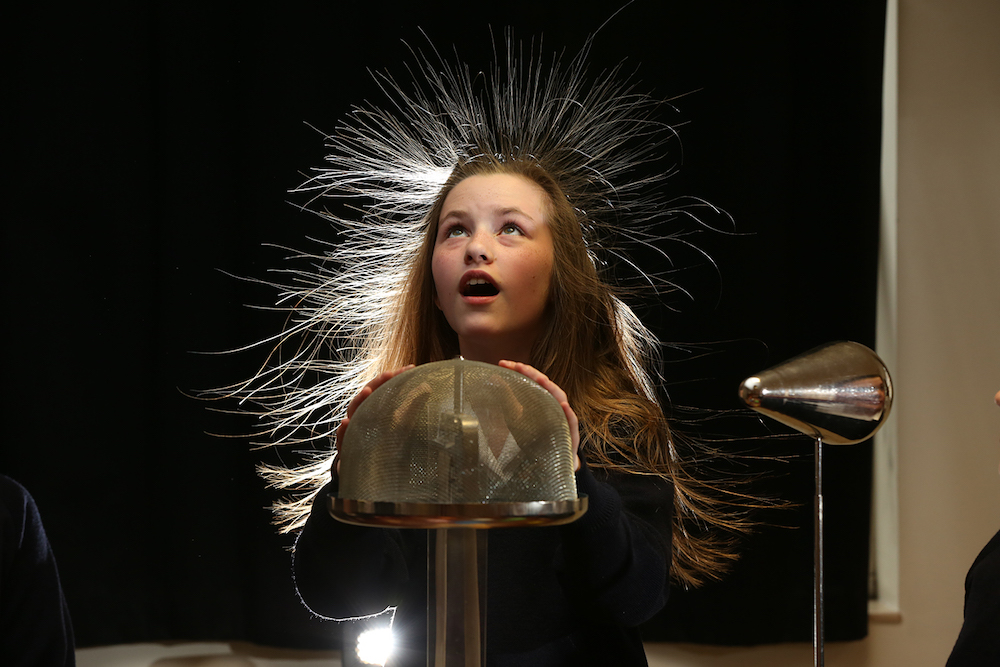Why and how more girls (and boys) should study STEM subjects
Posted on 4th May 2016 in School News, Which London School?
Antonia Beary, Headmistress of Mayfield School, says schools need to close a long-standing gender gap...
Recent figures reveal a widening divide between the subjects chosen at A level and beyond by girls and boys. While girls are dominating the health sciences like psychology and biology, boys are outnumbering girls by as many as eight to one in subjects like engineering, maths and computer science. Why is this? Is it a problem? And how can we address this issue?
It is well-documented that boys and girls are different. Where boys will take risks easily, girls tend to hang back and weigh up the likelihood of success before committing themselves. Fear of failure can prevent even the brightest girl from challenging herself. Teaching methods and materials for the more mathematical sciences are traditionally biased towards a more-left brain method of learning and understanding, which will typically suit boys better than girls. Coupled with a classroom environment often dominated by male students, it is no surprise that it takes a strong, determined and confident girl, usually with a clear career goal, to opt to enter this environment.
There is no quick fix to this issue, but there are many things that we, as schools, can do to instigate a change. It is not only society’s preconceived ideas about science which must be challenged; we need to remove the limits that pupils, particularly girls, are placing on themselves.
Capture her interest
Girls and boys learn in different ways, so in a learning environment it makes sense to give each what they need at each varying stage of development. Girls from single-sex schools like Mayfield are far more likely to opt to study STEM subjects than their peers at co-educational schools. Free from gender stereotyping, our girls enjoy not just equal opportunities, but all the opportunities. Not only that: as specialists in girls’ education, we have the expertise to adapt our teaching methods: to contextualise the curriculum with the world around us, in ways that inspire and capture the girls’ interest. We find more relevant ways to present scientific principles, and relate what is taught in the classroom to everyday life.
Educate her about the options available
Qualifications in the sciences can lead to careers in all sorts of industries: there are plenty more options than just medicine or laboratory research. We make sure our girls are aware that science degrees can open doors to all sorts of industries, from food production to journalism. We make it our mission to demystify science and to make it accessible to our pupils.
Provide female role models to open doors and share experiences
We invite speakers to talk to our pupils. High flying surgeons and researchers can be very inspiring, but of equal value are former pupils who have recently graduated or embarked upon a career in science: our pupils will relate to and be inspired by a young, female role model, and they will recognise a clear career path, making a sometimes remote goal seem more accessible.
Instil in her the confidence to see that she can do it
We aim to develop within each of our pupils the confidence to succeed in life, not just in science; but they are mutually compatible! We expect girls to be prepared to cope with failure as well as success. We encourage girls to challenge themselves in extra-curricular activities, giving them the confidence to take risks inside the classroom.
Pastoral care is crucial, and this is an area where single-sex schools like Mayfield shine. Individual, focused pastoral care allows girls to develop a positive image of themselves during those turbulent adolescent years, when girls are particularly vulnerable to self-doubt. The right school environment can foster self-belief, developing each girl’s confidence in her capabilities, and enabling her to make informed and considered career choices.
Be creative
It is a myth that the sciences and the arts are mutually exclusive. To be a successful as a scientist you need to be creative, and to be a successful artist, you have to have discipline, logic and focus that are usually associate with the scientific. How helpful is it to compartmentalise any child, particularly at the age of 11 or 13 when he or she joins a new school. Schools must encourage their pupils to be creative in all that they do. Rather than be influenced by gender stereotypes, they are encouraged to be themselves, and to be the best that they can be. Consequently, the next generation of girls will grow into mature, independent, confident and well-informed individuals, ready to make their mark on the world.
For more information about Mayfield School, see their profile on School Search.
This article appears in the 2016/17 edition of Which London School & the South-East. For more information, click here.